June 20, 2025 | 08:43 GMT +7
June 20, 2025 | 08:43 GMT +7
Hotline: 0913.378.918
June 20, 2025 | 08:43 GMT +7
Hotline: 0913.378.918
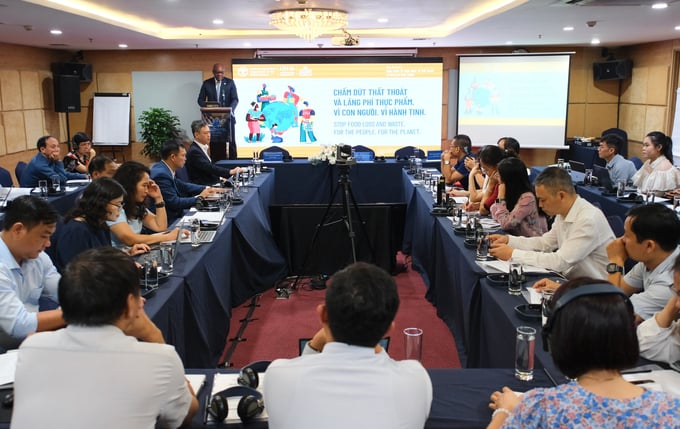
A ceremony to celebrate the International Day for Awareness of Food Loss and Waste organized by FAO. Photo: Quynh Chi.
On September 25, the Food and Agriculture Organization of the United Nations (FAO) held a ceremony to celebrate the International Day for Awareness of Food Loss and Waste.
Food loss and waste (FLW) causes huge economic losses to global agriculture. Every year, more than 10% of food volume is lost in the supply chain before reaching consumers. Even when food has reached families, restaurants and catering services, more than 1 billion tons of food continues to be wasted worldwide.
Furthermore, the amount of food dumped in landfills accounts for up to 10% of total greenhouse gas emissions from the food production system, causing environmental pollution and increasing climate change.
Speaking at the ceremony, Mr. Rémi Nono Womdim - FAO Representative emphasized: “As the global population increases, the demand for food rises. Food loss and waste reduction becomes an urgent task for all. Countries must take action to reduce food loss and waste.”
The FAO Representative highly appreciated Vietnam's commitments to reduce FLW. In particular, Decision 300 of the Government on transforming the FLW system to be transparent, responsible and sustainable has been highly appreciated by the international community.
Mr. Womdim congratulated the Ministry of Agriculture and Rural Development on its strong actions to reduce FLW. The FAO Representative also pledged to accompany Vietnam in promoting the transformation of the food system and realizing the sustainable development goals (SDGs) by 2030.
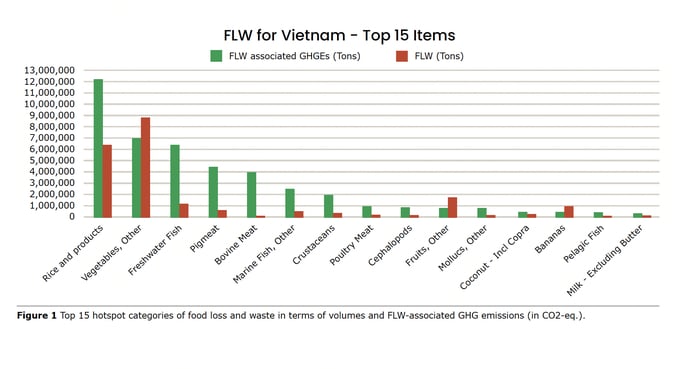
Food loss and Waste country profile Vietnam. Photo: Mitigate+.
At the Ceremony, Vietnamese agricultural experts discussed and shared efforts to combat FLW in Vietnam and around the world.
From a domestic perspective, Associate Professor Dr. Pham Anh Tuan - Director of the Institute of Agricultural Mechanics and Post-Harvest Technology said that the overall loss in the agricultural and aquatic product sector ranges from 20 - 25%. The total loss is estimated at about 8.8 million tons, equivalent to 3.9 billion USD, accounting for about 2% of the country's GDP and 12% of the entire agricultural sector's GDP.
Rice is a staple of Vietnam, but the rice supply chain is one of the sectors with the highest levels of FLW, increasing greenhouse gas emissions in agriculture.
According to the CGIAR-initiated Mitigate+ program’s 2022-2024 study, about 6.4 million tons of rice are lost in the supply chain nationwide, equivalent to 12.2 million tons of CO2 emissions, accounting for about 13 - 15% of total rice production.
This makes rice the leading product in the group of “extremely critical” commodities for reducing FLW in Vietnam, according to the international research team. In other words, reducing loss and waste in the production, harvesting, processing and distribution of rice products is the key to enhancing the sustainability and responsibility of the national food system.
Dr. Pham Anh Tuan analyzed some of the main causes of FLW in Vietnam. Due to the fragmented and small scale of agricultural production (common scale nationwide is 0.4 ha) and low level of mechanization compared to the region, farmers suffer losses after harvesting and storage. In addition, investment in infrastructure associated with raw material areas and logistics systems is limited, causing disruptions in the agricultural and aquatic product supply chain.
Therefore, Mr. Tuan recommends that scientists need to collect detailed data to be able to analyze the causes and implement appropriate intervention measures for each industry chain.
“A thorough analysis of the characteristics of the supply chain will help managers identify specific solutions on processing technology, management forms, as well as mechanisms and policies. This will contribute to improving efficiency in production and consumption,” the Director noted.
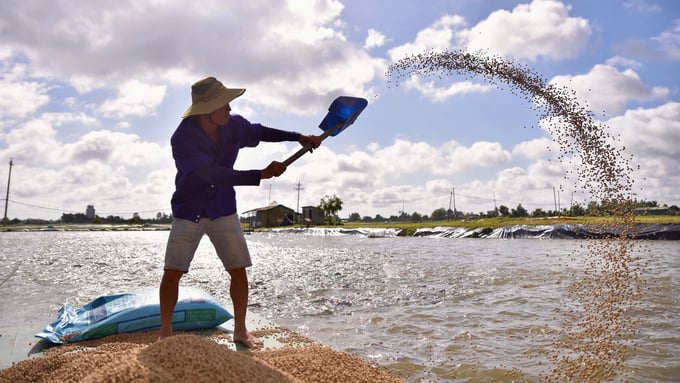
Reducing food loss and waste along the catfish value chain is critical to farmers and the private sector. Photo: Quynh Chi.
Accordingly, researchers from the Institute of Policy and Strategy for Agricultural and Rural Development (IPSARD) presented initial assessments of the current situation of food loss along the agricultural value chain as well as in household consumption.
Sharing more with policy researchers, Mr. Phan Van Tan - permanent staff of the Zero Hunger Program office, the program has nearly achieved 4 out of 5 of the goals set for 2025. However, the goal of reducing FLW is still facing difficulties in terms of resources and there are no specific mechanisms and policies to support activities.
“This content needs to be inter-sectoral with the participation of not only the Ministry of Agriculture and Rural Development but also the Ministry of Health, the Ministry of Industry and Trade, the Ministry of Natural Resources and Environment and other agencies,” Mr. Tan analyzed. He expressed his hope that there will be a coordination mechanism between units and localities to complete all 5 program goals.
Along with that, experts from the Institute of Strategy and Policy on Natural Resources and Environment (Ministry of Natural Resources and Environment) commented that there needs to be more participation from the Ministry of Planning and Investment. According to the expert, Decree 35/2022 of the Government on the management of industrial parks and economic zones will create great momentum for the application of science and technology in agricultural and aquatic product processing. The implementation of industrial symbiosis, connecting businesses and raw material areas will help partly solve the challenge of food loss in Vietnam.
Listening to the opinions of experts, the FAO Representative in Vietnam once again affirmed that reducing FLW contributes to improving the sustainability of national agriculture. Mr. Womdim hopes that strong and comprehensive efforts will help Vietnam transform the food system for better production, better nutrition, better environment and better life, so as not to leave anyone behind.
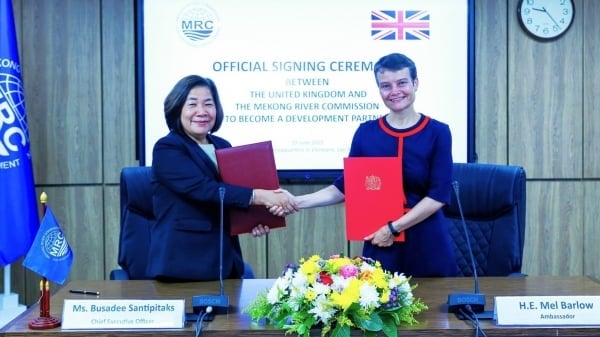
(VAN) On June 19, the United Kingdom officially became a Development Partner of the Mekong River Commission.

(VAN) Biodiversity is being threatened by traditional remedies made from wildlife. Traditional medicine and humans must change to live in harmony with nature.

(VAN) Agrifood investment and finance solutions for people and the planet.

(VAN) Microplastic contamination has become pervasive in seafood, posing unprecedented challenges for food safety and marine ecosystems.
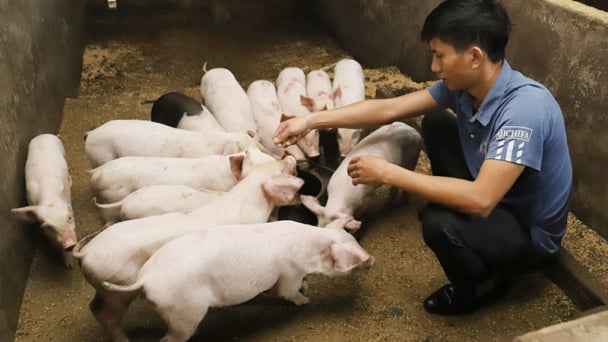
(VAN) Proactively using vaccines, combined with transport control and enhanced surveillance, is the only viable path toward biosecure and sustainable livestock production in Vietnam.
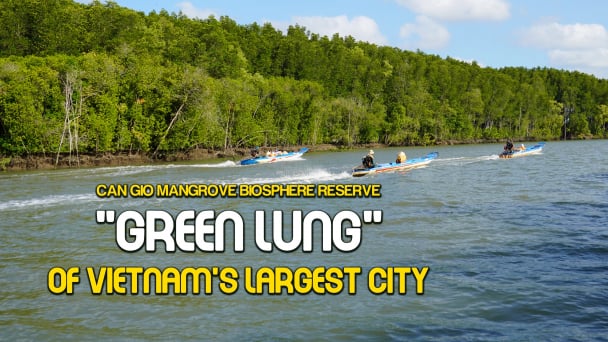
(VAN) Located in the southeast of Ho Chi Minh City, the Can Gio Mangrove Biosphere Reserve is considered the ‘green lung,’ a solid shield protecting the city.

(VAN) To address plastic pollution, closing the plastic recycling cycle will bring significant economic and environmental benefits.